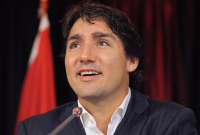Support strong Canadian climate journalism for 2025
Polls: they show up in just about every election news story – including ours here at National Observer. They tell which way the election race is trending, who’s on top and who’s likely to win. So they must be right.
Not so fast.
In recent years, political polling seems to have gone awry. After the 2013 election in British Columbia, one polling company was so far off the mark that it actually issued a long - really long non-apology - explaining what went wrong.
More recently, one of the most August of polling companies, Gallup, told Politico that it won’t commit to doing political polling for the 2016 American election. The reason according to Politico is because of a “bruising 2012 cycle, in which its polls were farther off than most of its competitors.”
“It’s difficult because there’s a couple of big problems with opinion polling in recent years,” Lydia Miljan, an associate professor of political science at the University of Windsor, told National Observer.
Before cell phones, 95 per cent of Canadians had a land-line, making it easy for pollsters to do random digit dialing and obtain a good sample. And in the past, people didn’t mind when pollsters called and solicited their opinion.
“Now the problem is, we don’t have a real representative sample anymore because not everyone has a land-line, not everybody’s home and even when you do get them on the line, they don’t always answer your questionnaire,” Miljan said.
In the wake of land-lines, other polling methods have sprung up, but aren’t always as successful. Calling individuals with cell phones doesn’t work as well because people are reluctant to use up their minutes discussing politics with a polling company.
Online polls raise their own issues. Anyone who doesn’t have a computer is excluded and it can be tough to obtain a truly random sample. Miljan noted that people may seek out the poll, particularly if they’re partisan and cause distortions in the results.
In a recent piece for the University of British Columbia News, Richard Johnston opined that the incidents of “serious error” by the industry appear to have risen. Johnston is UBC’s Canada Research Chair in public opinion, elections and representation in the department of political science.
“In Canada, we’ve had some particularly spectacular examples in the last few years, so there’s no question that confidence in the industry is shaken,” Johnston said.
He cited as the “two most spectacular” examples the 2012 Alberta election and, again, the 2013 B.C. election. In the former Wild Rose was polled as poised to win, but the Conservatives won with a majority. In the latter, the polls predicted the NDP would with a margin of five or six per cent, but in fact the Liberals won with five or six per cent of the vote.
Enter the aggregators.
Laura Stephenson, an associate professor of political science at Western University in London, Ontario, told National Observer that no perfect method of polling exists these days.
However, she said when you look at polls across a number of different places, trends often begin to emerge. When similarities start to show up from different polling houses with different methodologies, it suggests real trends are forming, Stephenson said.
“I think that’s why we’ve seen the rise of polling aggregators and that these sites are trying to get away from the idea that one poll is right, but more saying, let’s take the collective wisdom of a number of different polls and see how this is going to work,” noted Stephenson.
That may be so, but Miljan still distrusts the data. She believes the aggregators are only as good as the public opinion polls on which they rely. “Certainly, they try to average things out and they emphasize that you’re looking at trends.
“The problem that we’ve seen in the past and why we have to be wary of putting too much into them is that if the poll is flawed in the first place, then the aggregation is going to be flawed equally.”
Miljan isn’t convinced that polls drive voters to cast their ballots one way or another. She said it all comes down to individuals and how they calculate which candidate they’re going to support. And with their recent inaccuracies, it could be the public place less trust in polls than before.
Stephenson said people shouldn’t take the poll predictions for granted, banking on one party or another to win. In fact, with such a tight race forming for this election, it’s more important than ever that people vote.
“Depending on which [polling] site you go to, there’s different information,” Stephenson said. “But we’ve seen lots of neck-in-neck [races] and we do know that we can have reversals.”
“I really believe people, even more than any time I can remember recently, should be getting out and casting their ballot.”




Comments